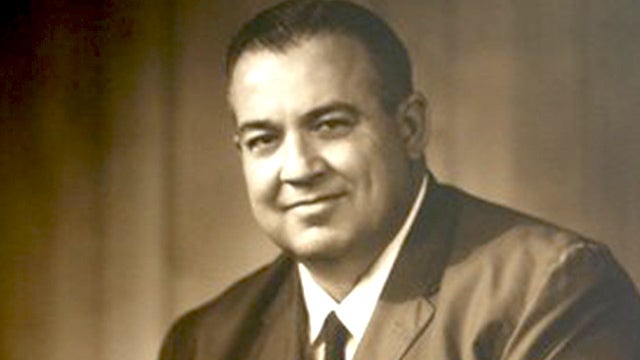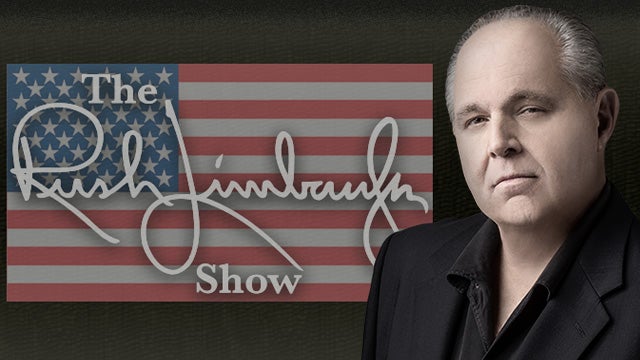RUSH: I thank all of you on the phones for your patience. And now we go back to you and to Kendrick, Idaho. Rebecca, great to have you on the program. Hello.
CALLER: Hello, Rush. Thank you very much.
RUSH: You bet.
 CALLER: I’m a Hispanic retired U.S. Army colonel whose father, as a newly American citizen, was on one of those landing crafts — and Trump’s speech is so amazing and touching — he was on the landing craft, and he told the sergeant, “I don’t know how to swim,” and they said, “that’s okay,” and they threw him in. What was amazing, he said, is he doesn’t even know how he got to shore. He doesn’t know if it was the wave or somebody grabbed him and took him to shore, but he actually made it to shore. And so this day is very special for us.
CALLER: I’m a Hispanic retired U.S. Army colonel whose father, as a newly American citizen, was on one of those landing crafts — and Trump’s speech is so amazing and touching — he was on the landing craft, and he told the sergeant, “I don’t know how to swim,” and they said, “that’s okay,” and they threw him in. What was amazing, he said, is he doesn’t even know how he got to shore. He doesn’t know if it was the wave or somebody grabbed him and took him to shore, but he actually made it to shore. And so this day is very special for us.
RUSH: Well, anybody that’s got a story — is your father alive?
CALLER: No, he’s not. He passed away quite a few years ago.
RUSH: Did your father talk about it much with you?
CALLER: No. Matter of fact, there were only two stories that he told, and he was a man that loved humor and to joke, and there were only two stories, and that was one of them. The other one was about the cook’s biscuits, being able to throw ’em on the wall and they’d bounce off the wall. Those are the only two stories that he would talk about.
RUSH: You know, the reason I ask you that — and thank you very much — is that my dad was in World War II, but he was in Burma, flew P-51s, B-25s in the China-Burma, what they call the China-Burma theater. A good friend of his was also in the same place, and they wouldn’t talk about it. Simply would not talk about it.
My brother and I would ask, you know, we’d watch a war movie as kids on TV. “What was it like?” Wouldn’t tell us. I mean, we were young. We were left to speculate as to why not. Got older and found out that it was just a matter of, you know, not relating stories of warfare that involved killing and so forth. And as I got older and encountered more people that fought in World War II, I found that to be a common trait, they didn’t talk about it. And the impression that that made didn’t hit me until much later.
One of the reasons they didn’t talk about it was it was just the values and the mores of the day. You didn’t toot your own horn. There was no braggadocio about it, particularly in matters like this when you’re talking about – I mean, we’re little kids, “How many of the enemy did you shoot down, Dad, how many?”
He would not even entertain the discussion. War was always presented as a hellish thing. There was nothing glamorous about it and that we weren’t to associate glamour with it, even with victory. It was solemn. It was very solemn.
 And that’s why I asked you if your dad talked about it. He didn’t either. Two stories. Imagine how much he could have told you about landing at D-Day, and you got two stories out of it. They just didn’t talk about themselves. It just wasn’t part of the makeup in that generation culturally to talk about themselves.
And that’s why I asked you if your dad talked about it. He didn’t either. Two stories. Imagine how much he could have told you about landing at D-Day, and you got two stories out of it. They just didn’t talk about themselves. It just wasn’t part of the makeup in that generation culturally to talk about themselves.
You know why, folks? You know why? It’s because of all that they had to grow up so early in their lives to deal with. They didn’t have time to think about themselves, coming out of the Great Depression as young kids or their parents living through it and hearing about it. Then World War I had preceded that, here comes World War II, and the Soviet Union then promising to bury their children in 1959.
They had to grow up real fast and learn there were things much larger than themselves. They didn’t have daytime TV shows like Oprah, Phil Donahue where the focus was you and your complaints in life or your struggles in life. They just did it. They dealt with it and didn’t talk about it.
My cousin Dan found some papers in my grandfather’s stuff just a couple of months ago, letters that my dad had written home while he was in combat. There aren’t many of them, but at least there are those. And there were things in those, my dad reporting to his parents, his mom and dad, my grandparents, what he was doing, what the war was like where he was and so forth and assuring them he was okay and all that. But that’s as much as we ever heard about it. And that was just a few months ago.


